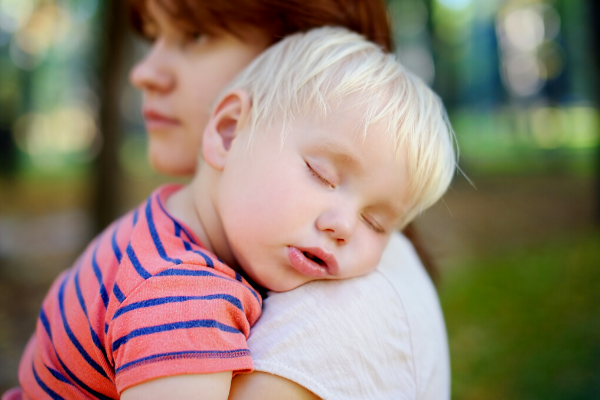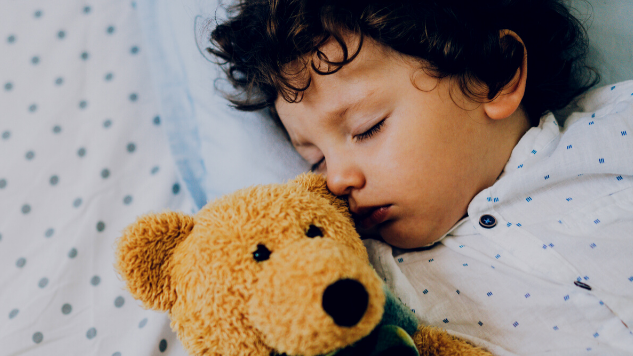How Much Sleep Do Kids Really Need?

Ok, so we know that the person who really needs some sleep here is you. However, we also know that in amongst your 2am feeding sessions, the 3am nightmare settling, and the 5.30am early waking, you’re also wondering if your child is really getting enough sleep. Here we look at the question: How much sleep do kids need?

How Much Sleep Do Kids Need?
Youngsters – from newborn to teen – need more sleep on average than adults. The reason they need more sleep is that mental and physical development requires some hefty deposits in the sleep bank.
However, we also know that kids don’t come with an off button, and there’s no such thing as ‘normal’. Your little one might be at one end of the sleep requirement scale, whilst you sit at the other. Life can do that sometimes.
It’s also complicated further by the fact that babies, toddlers, children, and even teens, don’t necessarily show they are tired in easy to understand ways. You might flop in an exhausted heap in front of Netflix, whilst your little one, literally, bounces off the wall.

How Many Hours Of Sleep Do Kids Need?
It can be helpful to look at some ballpark figures to see if your child is vaguely within the bounds of normal.
The NHS provides clear figures on how many hours of sleep kids need, broken down into day and night time amounts. For example, an average 3 month old will need 15 hours of sleep over day and night, and an average 9 year old will need 10 hours nightly.
However, do remember that these are averages. Children haven’t read the Sleep Manual and some will need less, or more, than others.
One of the biggest tips we can give parents who are wondering how much sleep kids really need, is to go with your gut instinct. You know your child better than anyone. Even between siblings you can get one who needs a full 12 hours at night and another who is bright-eyed and bushy-tailed on just 7.5 hours of shut-eye.
Accepting your child’s sleep requirements on an individual basis will also help you feel less aggrieved if your child is at the less-is-more end of the sleep scale.

What To Do If Your Child Isn’t Getting Enough Sleep
Of course, you’re then left with a conundrum if you feel your child needs more sleep than they are getting.
Whilst there are some conditions, such as ADHD or sleep apnoea, that can cause a child to get less sleep than they need, these are unusual. However, if you’re worried that there is something more going on, then your first port-of-call should be your GP or Health Visitor. If necessary, they can refer you to a sleep clinic.
If you suspect your child isn’t getting enough sleep, but there’s no underlying medical condition, then routine will need to be your new best friend. Routine helps the circadian rhythm, or ‘body clock’, work to your advantage.
By getting plenty of activity and daylight during waking hours, sticking to regular meals, and reducing screen time close to bedtime, you can work with your child’s body clock to get them sleeping better.
This is particularly important to remember when holiday times are upon us. Term-time tends to bring with it a more structured family routine, even for baby siblings.
In holiday periods the routine can slip, and the result is that your child’s sleep bank suddenly diminishes. What should be a happy memory-making time is instead fraught with grumpy whinging. Getting routine back into the days will get you back on track.
How much sleep kids really need will vary – by age, and by child. Knowing your own child, and making sure their routine bolsters their sleep needs will help the whole family. Sweet dreams!
We believe your little ones deserve the very best care. That's why our local network of babysitters are personally checked and picked by our family for your family www.sitters.co.uk.
